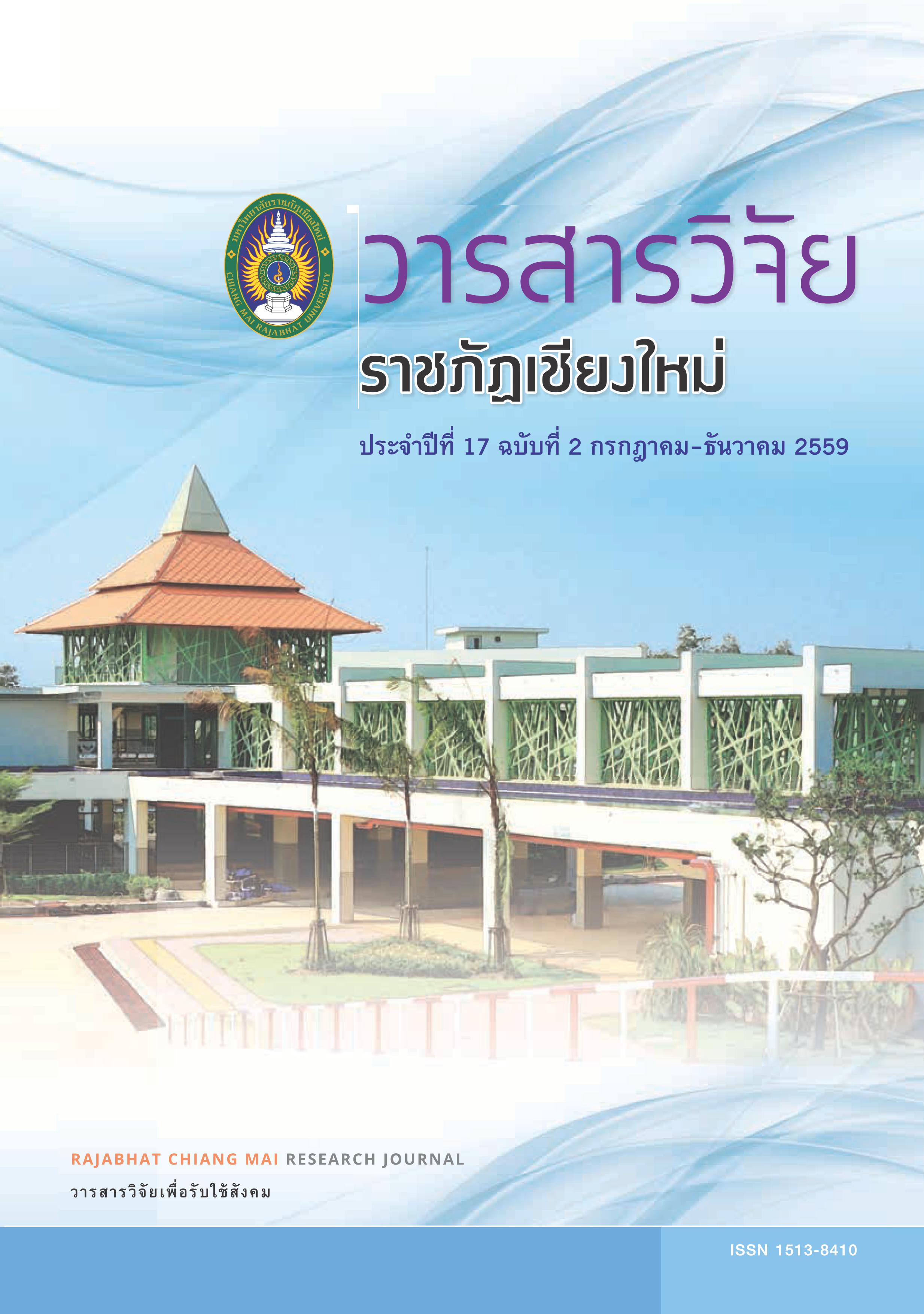การถอดบทเรียนการพัฒนาทักษะชีวิตสำหรับบุคคลออทิสติกในมุมมองผู้เชี่ยวชาญ
DOI:
https://doi.org/10.14456/rcmrj.2016.95181คำสำคัญ:
Developing Life Skills, Persons with Autism, Autism Expertsบทคัดย่อ
This study is based on the methodology of qualitative research. The purpose of this study was to draw up the lesson learnt from developing the long life skills for the persons with autism spectrum disorder on the views of the autism expertsA focus group was used as the research instrument. The qualitative data was collected and analyzed with content analysis technique. The results of this research were found that the person with autism wanted the parents or caregivers to consider autistic children as general people that face problems and try to nd the solution. Viewing them as the same as the others was the great way to support and encourage them to improve themselves. However, the child psychiatrist and the psychiatric nurse practitioner pointed out that the key coordinated roles were assessment, diagnosis and treatment; moreover, the most important process was to nd out the riskiness of being autistic during the rst 3 years olds. Furthermore, the occupational therapist viewed that a fundamental treatment was to solve their ve sensory awareness in integrated way. Moreover, the special education teacher added that if they would go to a school, a co-operation between a school and parents was needed in order to closely take care of their development and study. This helps them to live as normal or close a life as possible.Downloads
ดาวน์โหลด
รูปแบบการอ้างอิง
ฉบับ
ประเภทบทความ
สัญญาอนุญาต
1. บทความ ข้อมูล เนื้อหา รูปภาพ ฯลฯ ที่ได้รับการตีพิมพ์ใน “Community and Social Development Journal” ถือเป็นลิขสิทธิ์ของ Community and Social Development Journal มหาวิทยาลัยราชภัฏเชียงใหม่ และเพื่อให้เผยแพร่บทความได้อย่างเหมาะสมผ่านสื่อสิ่งพิมพ์และอิเล็กทรอนิกส์ ผู้เขียนยังคงถือครองลิขสิทธิ์บทความที่ตีพิมพ์ภายใต้ใบอนุญาต Creative Commons Attribution (CC BY) ซึ่งอนุญาตให้เผยแพร่บทความซ้ำในแหล่งอื่นได้ โดยอ้างอิงต้องอ้งอิงบทความในวารสาร ผู้เขียนต้องรับผิดชอบในการขออนุญาตผลิตซ้ำเนื้อหาที่มีลิขสิทธิ์จากแหล่งอื่น
2. เนื้อหาบทความที่ปรากฏในวารสารเป็นความรับผิดชอบของผู้เขียนบทความโดยตรง ซึ่งกองบรรณาธิการวารสารไม่จำเป็นต้องเห็นด้วยหรือร่วมรับผิดชอบใดๆ














